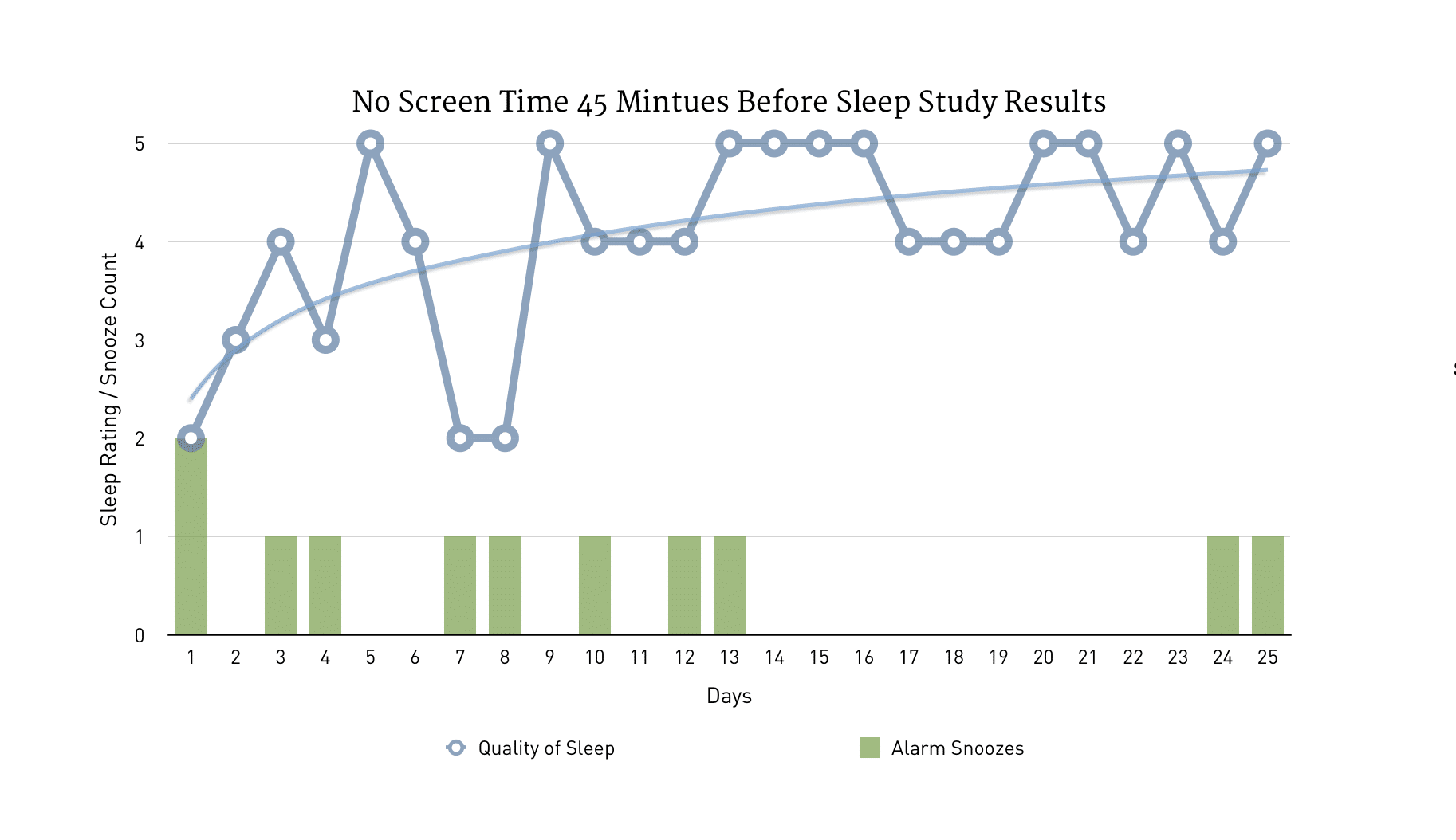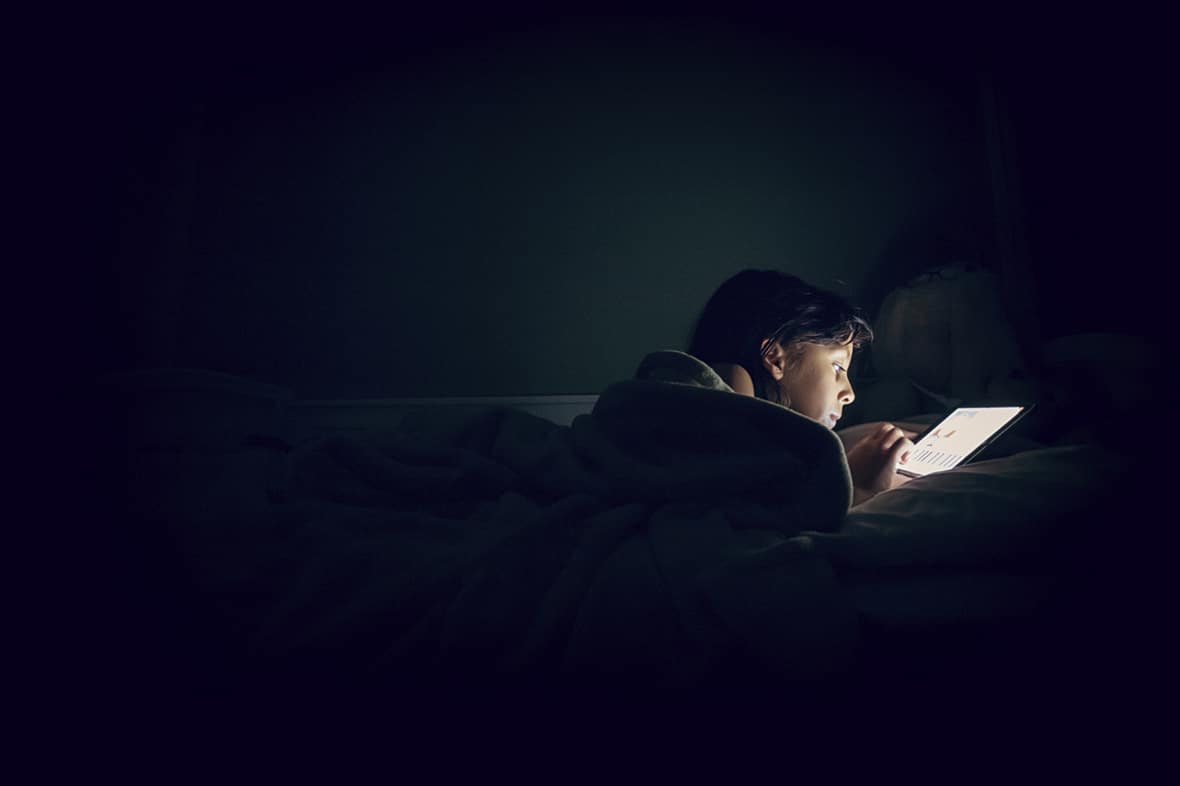Article summary
There have been a number of studies and articles about the potential ill effects of screen time before bed. The light from the screens supposedly disturbs our circadian rhythms, upsetting the internal clock which helps our bodies know day from night. Several articles on this subject have caught my eye, including the Wall Street Journal’s “Open the Book, Put Down the Tablet at Bedtime” and The Economist’s “To Sleep, Perchance,” but it wasn’t until a recent road trip that I decided to test the theory for myself.
I was listening to the Freakonomics podcast, The Economies of Sleep Part I & II. The program gave the impression that studies and data can back up the claims that screen time before bed is bad for the human body. They also talked to sleep expert Lauren Hale, an associate professor of preventive medicine at Stony Brook University, who admitted that she often uses screens before bed—despite fully understanding the consequences.
I could empathize with her. I’d read the articles, but had yet to change my own behavior. It’s not uncommon for my household to watch movies or TV shows or stay up late working before bed. I’ve gone to sleep right after an hour of screen time, and I wondered, Does it really matter? Hearing that podcast was the last straw for me, so being an Atom, I decided to run my own study.
Procedure
First, I’m fully aware that the validity of my experiment in sleep optimization is questionable, as it was extremely biased. However, I still wanted to see for myself: Would I feel better the following day if I ended my screen time at least 45 minutes before bed?
I set an alarm to get in bed between 9:30 and 10:00 p.m., planning to leave my screen behind and read newspaper articles or a book for 45-60 minutes before going to sleep. The next morning, I set another alarm as a prompt to document my sleep on a scale from 1-5, with 5 being “completely rested.” I also documented the number of snoozes it took me to get out of bed and recorded my data in an Excel document.
Results
So far, my experiment has supported the theory that stepping away from the screen before bed is beneficial. After two weeks of my sleep study, I’ve seen an increase in my perceived quality of sleep and a slight decrease in the number of snoozes it takes to get me out of bed. Screen time before bed does seem to have a negative effect on my body.
Here is the data:

Risks/Downsides
There were some downsides to the experiment. I have, on occasion, had to stay up later than anticipated to complete the 45 minutes of screen-free time before bed—no easy task when you’re already exhausted and can’t stay awake! This schedule also requires some forward thinking about how you plan evenings with friends, family, and significant others.
I have likely been biased by being so focused on the quality of sleep and self-reporting the data. It’s also possible that the reason I feel more rested and ready for the day is because I’m keeping myself on a more regulated sleep schedule than normal.
As of right now, I cannot report a massive difference from following this method. Running a reverse study where I use screens right before bed would be a good test to shed light on that.
Next Steps
I plan to continue the study for at least another two weeks, and I will likely also test the effects of having screen time right before sleep. I recommend that you try this experiment for yourself to see how your body responds to the lack of screen light before bed. If you decide to run the experiment, let me know what your findings are.

